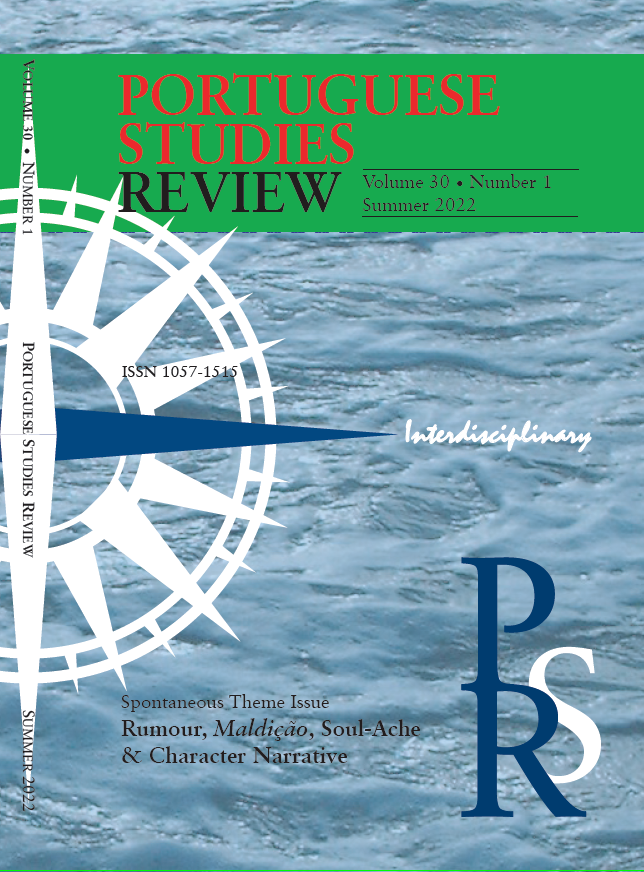 The Portuguese Studies Review The Portuguese Studies Review
(PSR home page  ) )

The PSR is an imprint of
Baywolf Press.
|
The Lusophone Studies Association (LSA) is an interdisciplinary academic association dedicated to the promotion and dissemination of broadly based scholarly research about the Lusophone world. The Association seeks to facilitate access, in Canada and elsewhere, to the textures of knowledge, lived experiences, lifestyles, plus tangible and 'intangible' heritage conveyed through the Portuguese language (all dialects included), literature, culture, institutions, imagery, art (in all forms), legislation, academic thought, infrastructure, behavioural patterns, shopping patterns, food and tastes, etc. All these complex entangled coordinates possess enduring universal validity and significance. They actively contribute to shaping kaleidoscopic aspects of many global communities -- strategically, economically, socially, ethnically, as well as in terms of investments, baseline demand, social policy, choice of products and services, leisure preferences, core and applied design, technology, local and global marketing, ranking of brands and products, supply networks, learning and training, cross-cultural and inter-continental strategies, and in numerous other ways. Lusophone Studies (the study of this Portuguese-speaking world) is a
broad interdisciplinary area that seeks to encompass the numerous crossroads,
perspectives, and contexts. Lusophone Studies focus on such perspectives and intersections in
interdisciplinary ways, in order to create an inclusive panorama of current
issues and viewpoints which relate to collective historical legacies.
Portuguese is spoken by more than 240 million minds around the world today, not counting derivative dialects, in nations and territories such as Brazil, Portugal, Angola, Mozambique, Guiné-Bissau, Cape Verde, São Tomé and Príncipe, Macau, East Timor, Goa, Daman and Diu. It is the 6th most spoken language in the world, and the 3rd most spoken in the Western Hemisphere. It is passively understood by an even larger implicit cultural audience. Immigrants from all the relevant domains are scattered in large communities
throughout the world, with major concentrations in the United States,
Canada, France and other European destinations. The language unlocks the doors to a vast corpus of cumulative data -- past and current -- and to specific 'ways of knowing' that involve varied cultures and their complex existential expression and self-identification. The Portuguese 'experiential domain' partly intersects with the Spanish one, as well as with that of other related linguistic communities -- including, in fact, those that are Francophone. Between them, Spanish and Portuguese together (in amity or opposition) have for many centuries shaped the key conceptual parameters of intricate global populations. As languages and living / ebulliently evolving cultural & legal & conceptual frameworks they keep structuring the effective everyday life and interaction of well over 700 million people, constantly on the move around the planet and on digital media -- with their products, ideas, statements, resources, music, notions, sounds, social and cultural programming, accents, compliant or dissident orthographies, solutions to life's problems, etc. The 'virtual' patterns circulate even more widely -- 24/7/365 -- than the physical individuals or families / rooted lineages / spatially mobile communities.
It is this deeply textured heritage, all these connections (sometimes for better or for worse, as in any entangled human relationship, whether personal or collective), this vivacious life simply seeking to keep living brightly and tenaciously in the 'now' as well as in the resulting complex and variegated future(s), that the Lusophone Studies Association seeks to help foster, express, translate, mediate, convey, and channel as broadly as possible.
 |
|
May we suggest further navigation options?
Book :Launches: Toronto and Porto (Portugal) ~ Maria João Maciel Jorge, The Hyphen and Other Thoughts from the In-Between (2024) (Members' Section -- Restricted Access, material on Google Drive Link, click "open material directly" after you have logged to your LSA account, and ignore Google instructions) 
Warmest congratulations to Dr. Maria João Maciel Jorge, a former President of the Lusophone Studies Association, on her new book The Hyphen and Other Thoughts from the In-Between (2024), launched so impressively both in Toronto (26 April 2024) and Porto (2 May 2024). We include here the Toronto launch poster and a link to her interview about the book and the issues it raised with the Dr. Irene Marques, hosted by Arquipélago Press and Media.
 |
|
Go to the LSA Conference Archive -- Additional Archived Records (Members' Section -- Restricted Access) 
Go to Calls for Papers (Public) 
Go to the LSA Conferences Archive (Public) 
Go to the LSA Members' Area [Restricted Access] 
|
|

